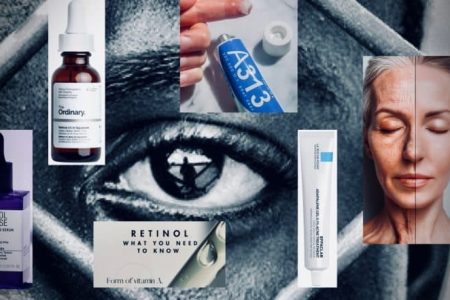In 2014, Teen Vogue highlighted the remarkable benefits of retinol, a compound derived from vitamin A that rapidly gained popularity in the cosmetics world. Just two years prior, Vogue had referred to it as an “anti-aging miracle worker.” This surge in acclaim was largely due to the understanding that retinol is milder on the skin compared to other retinoids. Its stronger counterpart, tretinoin (commonly known by the brand name Retin-A), is also gaining recognition today, but its history is far more painful and alarming. This seemingly miraculous cream comes with a haunting backdrop of decades of ethical misconduct. Hermès’ Mini Kelly – Celebrity’s New Obsession, Fashion Enthusiast’s Pride, Brands’ Nano Gem.
Before the FDA approved Retin-A in 1971, it was subjected to disturbing testing on many vulnerable individuals, particularly those incarcerated in Philadelphia. Led by dermatologist Albert Kligman, a long-running program from 1951 to 1974 involved numerous experiments on marginalized groups, the majority of whom were Black men at the now-closed Holmesburg Prison. These individuals endured extreme experiments for the production of pharmaceuticals, cosmetics, and even chemical agents, often without their informed consent. One survivor recounted, “I got a needle in my spine for $7,” highlighting not just the financial exploitation but the profound lack of regard for their well-being. Is the Art of Customized Tailoring Fading Away?
The Truth Behind the Skincare Industry’s Beloved Serum: Retinol
The consequences were devastating; many left with visible scars and long-lasting emotional and physical issues. While most of the subjects were men, women in prison were also subjected to testing on menstrual products, experiencing similar violations of consent and suffering resultant health complications. The research team enticed those in desperate situations with financial incentives, leaving them in the dark about the true nature and potential dangers of the substances being tested. As former inmate Al Butler noted, “They were just preying on people. Using an inmate was cheaper than buying a chimpanzee and the results were better.”
For many of these individuals, prison jobs were scarce and poorly paid, and they often needed money for legal fees or bail. Many were awaiting trial and had not been convicted, making them particularly vulnerable. Their lack of understanding often led to dire choices, seeing these trials as a means of escape. The systematic exploitation of these marginalized people, under the guise of medical research, resulted in life-altering scars—both physical and psychological.
In 2000, a group of nearly 300 survivors came together to file a lawsuit against Dr. Kligman, the University of Pennsylvania, Johnson & Johnson, and others, accusing them of exposing participants to harmful substances without obtaining their informed consent. Although the lawsuit was dismissed due to the statute of limitations, these brave individuals continued to raise awareness, protesting in 2003 when Dr. Kligman received a lifetime achievement award.
Regrettably, proper accountability was slow to emerge. Nonetheless, public awareness began to shift, and in 2021, the American Medical Association urged the university to sever ties with Kligman and provide reparations to his victims. Following a public petition, the university finally offered a formal apology, renouncing his legacy and allocating research funds to address dermatological issues impacting people of color. In 2022, the City of Philadelphia also issued an apology, and in 2023, the College of Physicians rescinded the achievement award Kligman received and publicly acknowledged the suffering of survivors.
While these apologies represent a significant step forward, they cannot fully heal the deep wounds experienced by survivors and their families. The ongoing calls for genuine justice and meaningful reparations highlight a shared commitment to acknowledging the painful legacy of Dr. Kligman’s actions, an unsettling reminder of the exploitation that transpired under the guise of scientific progress.
It is crucial for us to honor the memories of those affected and to learn from these troubling aspects of our history. We must prioritize the rights and dignity of every individual, especially the most vulnerable among us, ensuring that such injustices are never repeated. “Share the wealth. After all, they paid the price.” This reminds us that, much like the saying “all that glitters is not gold,” the apparent brilliance of youthful innovation often hides darker truths, particularly when the sacrifices of the less fortunate have been tragically overlooked in the relentless pursuit of research.
(The above story first appeared on Today News 24 on Mar 26, 2025 02:13 PM IST. For more news and updates on politics, world, sports, entertainment and lifestyle, log on to our website todaynews24.top).
//vdo //(function(v,d,o,ai){ai=d.createElement('script');ai.defer=true;ai.async=true;ai.src=v.location.protocol+o;d.head.appendChild(ai);})(window, document, '//a.vdo.ai/core/latestly/vdo.ai.js');
//colombai try{ (function() { var cads = document.createElement("script"); cads.async = true; cads.type = "text/javascript"; cads.src = "https://static.clmbtech.com/ase/80185/3040/c1.js"; var node = document.getElementsByTagName("script")[0]; node.parentNode.insertBefore(cads, node); })(); }catch(e){}
} });

